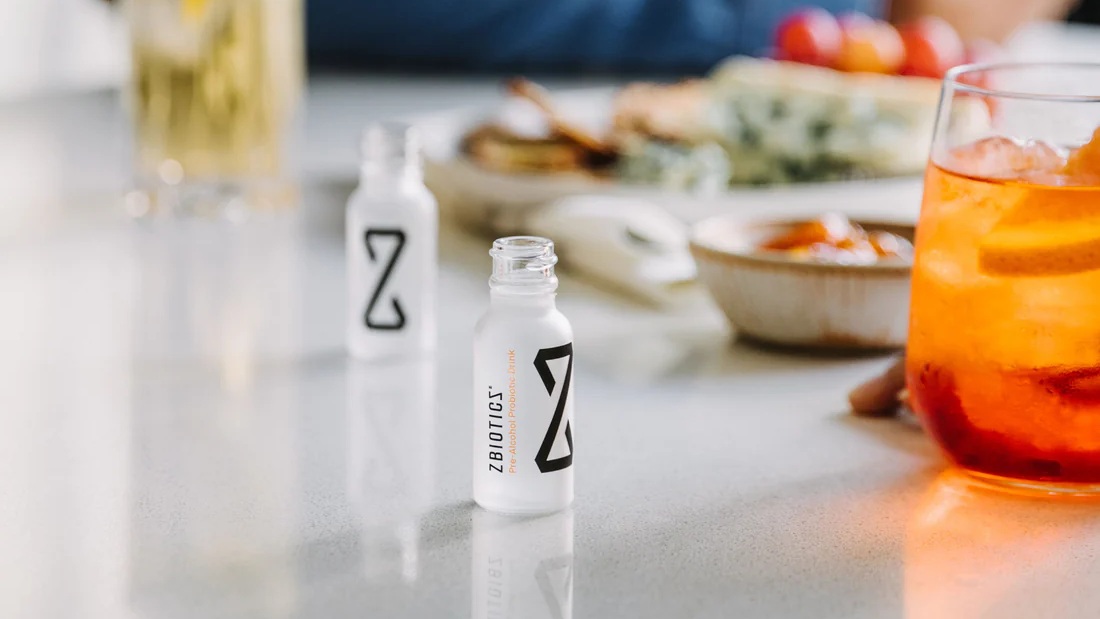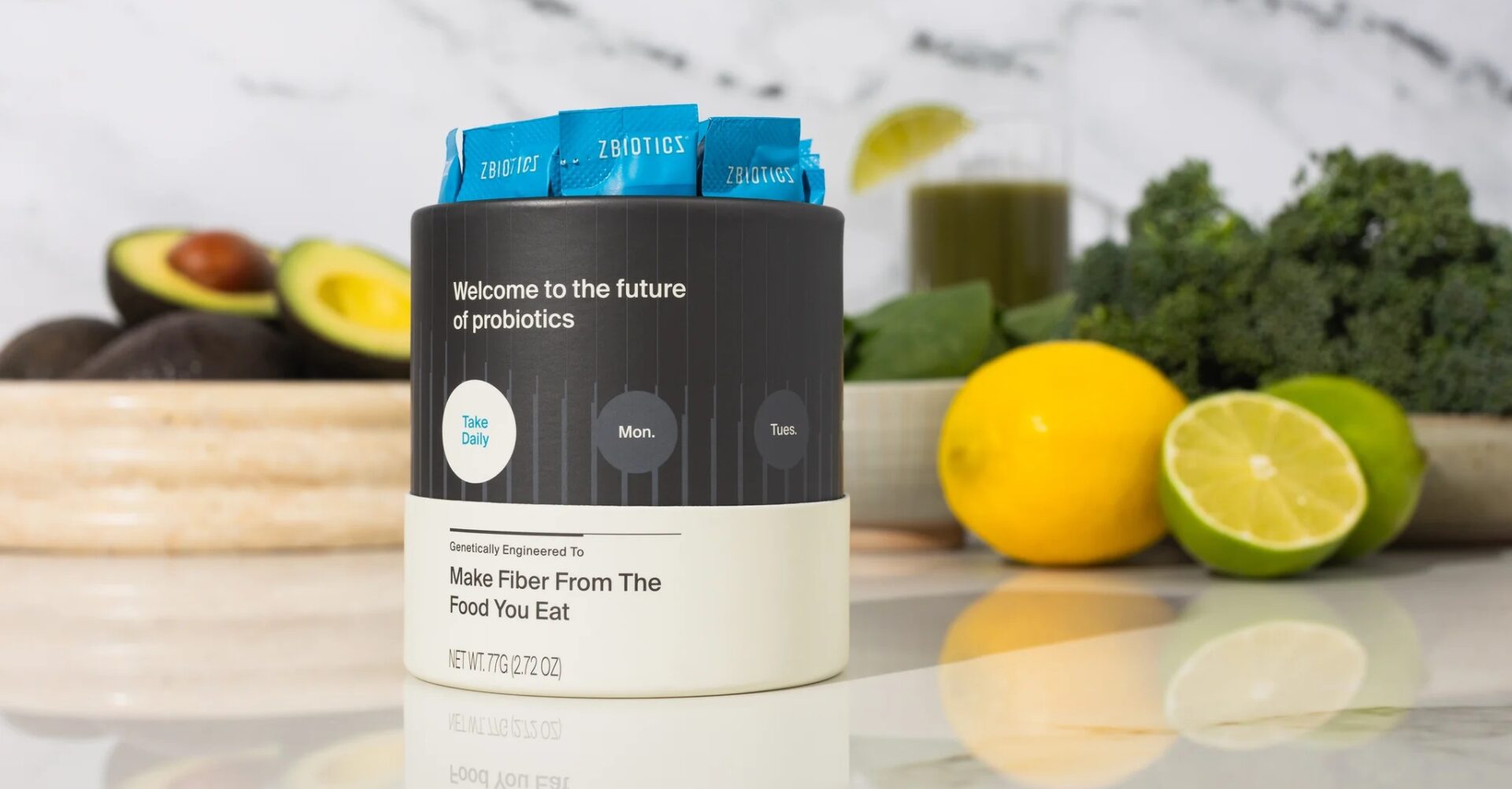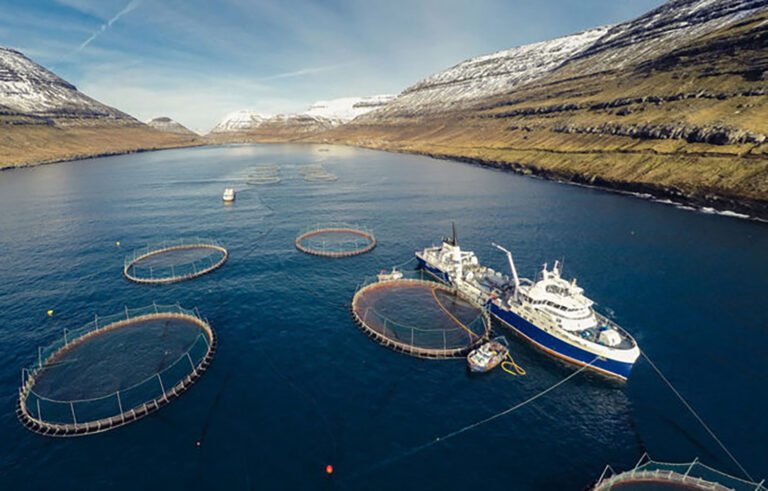
“When I started ZBiotics, I was sure somebody would beat us to the punch,” says Dr. Zack Abbott, the microbiologist behind a genetically engineered probiotic serving as a hangover remedy that many consumers now swear by.
“But when we launched three years later, we were the first to market with a genetically engineered probiotic [ZBiotics Pre-alcohol: a shot containing bacteria engineered to expresses an enzyme that breaks down a toxic byproduct of alcohol in the gut].
“Five years later, we launched our second product [ZBiotics Sugar-to-Fiber: which contains containing bacteria engineered to express an enzyme that converts sugars into fibers in the gut] and still nobody else had launched a GM probiotic. I’m not totally sure why, I think maybe there’s a fear that consumers will reject it, but we just haven’t seen that.
“Consumers want products that deliver tangible benefits… and that’s what we give them, so I have a feeling that this approach is going to become more and more popular.”
AgFunderNews (AFN) caught up with Abbott (ZA) at the SynBioBeta event in San Jose to talk about his first two “proudly GMO” products, why ZBiotics is making the protein factory rather than the protein itself, and what’s next in the field of designer probiotics.
AFN: When we drink, our liver is pretty good at producing enzymes that break alcohol down into acetaldehyde and then convert it into acetate. But what happens in the gut?
ZA: It’s the reason that we built ZBiotics… A small amount of the alcohol you drink gets broken down in the gut, in large part, by your microbiome, before it’s absorbed in the bloodstream, before your liver has access to it. And even though this is a small amount of alcohol, it is largely being converted into a toxic byproduct called acetaldehyde.
Your liver can convert acetaldehyde into acetate, but the gut is not very good at that.
AFN: You’ve engineered a bacterium (ZB183) that can express the enzyme that breaks down acetaldehyde in the gut?
ZA: Exactly right. If you were to go through the whole process of [industrial-scale] fermentation to make the enzyme and then extract it and encapsulate it, if you’re lucky, you could get that through your stomach acid and then it would be functional for maybe an hour at best.
Instead we’re delivering the bacteria to continually make that enzyme the entire time it’s in your gut, which means that you get more of that enzyme delivered over time. The bacteria make it through your stomach acid unharmed and they’ve naturally evolved to express lots of enzymes in your gut. We’ve just engineered them to make this one extra enzyme.
AFN: So you’re using Bacillus subtilis that’s in a kind of dormant state, but ‘wakes up’ when it gets into your gut?
ZA: Exactly. Bacillus subtilis comes packaged with all this capability, and in that spore form, it’s resilient, it can resist big changes in temperature and pH and it’s shelf-stable for a long time. When you drink it, it can pass through your stomach acid and then once the pH elevates [when it reaches the gut], it will sense that environment, wake up and start expressing the enzyme.
AFN: This sounds great, but how big of a contributor to hangovers is the buildup of acetaldehyde in the gut?
ZA: We know that acetaldehyde is highly toxic. We also know that the gut is a major source of acetaldehyde. And so we had a hypothesis that eliminating this toxic molecule would help you feel better.
But honestly, when we built the product, we weren’t sure exactly what level of impact it would have. So there was just a kind of a hypothesis in the beginning, and then we saw that it had a pretty large impact.
AFN: How do you know that your bacterium emerges from its dormant state to produce the target enzyme in the gut?
ZA: First and foremost, there’s myriad studies in the scientific literature that convincingly show that Bacillus subtilis naturally has this ability [to produce certain enzymes in the mammalian gut]. We know the germination triggers and we see that with our genetically engineered strain none of those behaviors or genes have changed at all, so there’s no reason to expect that it wouldn’t ‘wake up’ and produce enzymes.
That being said, we have of course validated our strain in gut-simulated conditions. But most importantly, people taking it experience an effect [after drinking], and so that gives us a lot of confidence.

AFN: Tell us about your go to market strategy
ZA: We thought it was really important in the early days to understand who our customer was, and direct to consumer is really the best way to do that. Once we had that understanding, we launched on Amazon, which has been incredibly successful.
But in reality, you’re not always planning three or four days ahead before you’re drinking; sometimes it happens in that moment. And so brick and mortar [retail] is really an important piece of puzzle. This year in particular, we’re focusing heavily on launching in brick and mortar, with some early launches in California in Bevmo and Earthbar, which is a smoothie bar, and in Equinox gyms.
We see that where people are investing in their health is actually a great place for our product.
AFN: Who is the heaviest purchaser of your product? People that can’t drink like they used to?
ZA: Yes. In addition to the fact that alcohol affects us more profoundly as we get older, it is also the case that we have more to lose [from ruining the next day with a hangover]. We have families, health issues, jobs and responsibilities. Our core customer is somebody that really invests in their health that can’t afford to take a day off from those habits and routines.
AFN: How have you marketed ZBiotics pre-alcohol? I’m guessing it’s not a ‘get out of jail free’ card?
ZA: Correct. Our product does not make alcohol any safer or better for you. It just enables you to feel better the next day so that you can maintain your healthy habits. It’s just one more tool in the toolbox in addition to making sure you’re not drinking on an empty stomach, you’re pacing yourself, and you’re getting plenty of sleep.
AFN: What marketing approaches have been the most effective?
ZA: Podcasts in general have been really strong for us. The truth is that the [hangover remedy] category is full of snake oil, and because of that, there’s a huge amount of skepticism.
So when we think about the best places for people to be introduced to our product, it’s from a credible source talking about how the product works and why it’s different… and podcasts are a great way to do this. So we make sure that we have a relationship with the hosts and that they’ve tried the product and they truly believe in it, so that authenticity comes through.
We also do more traditional digital advertising, but podcasts and word-of-mouth have been the most powerful mechanisms for acquiring customers.
AFN: How much success have you had so far?
ZA: To date, we’ve sold over 8 million bottles so it’s going really well. I’m very excited about the future of genetically engineered probiotics. I think that we’ve started to lay a foundation for a category.

AFN: Tell us about your second product, ZBiotics Sugar-to-Fiber (ZB423)?
ZA: 95% of Americans don’t get enough fiber in their diet, and that’s because our food system has become more and more processed, and so it gets harder and harder to reach our [recommended] fiber intake.
We’re taking a bacterium that we engineer to express an enzyme [levansucrase] that essentially splits sucrose into glucose and fructose and then takes the fructose and stacks it together into an oligofructose called levan, a rare fiber that’s found in the fermented food natto.
There have been a lot of studies that show that levan helps the gut and short chain fatty acid production. We can basically turn any food you’re eating into a source of this fiber, which is pretty cool. And so it allows people to get not only more fiber from the foods they are already eating, but also to get a rare fiber that increases the diversity of the types of fiber in your diet.
We supply it via a powder that you can mix with food or drink, and then the idea is that you take it at the same time every day so the bacteria is essentially in your gut all the time. All day long as you’re eating, it’s pulling small amounts of sugar from your food and converting that into small amounts of fiber.
AFN: How have you validated this product?
ZA: It’s actually straightforward to test this. The goal here is fiber diversity to create microbiome diversity and support a healthy microbiome and short chain fatty acid production, which are straightforward endpoints.
So you can take fecal samples from volunteers and then sequence their microbiomes and look at transcriptomic data to see upregulation of the enzymes that produce short chain fatty acids and so on, so the preliminary data is really strong. But now we’re looking to conduct more official human clinical trials that we can publish.
AFN: What’s next in the world of designer probiotics?
ZA: We’re working on products for athletic performance, sleep, vaginal health, and skin health… we’re thinking about anything and everything, as at the end of the day, these bacteria are capable of performing essentially any biological function. If it’s a useful function, we could potentially program it into a probiotic and have it deliver that function to you. The sky is the limit.
AFN: If it’s such a no-brainer, why aren’t all the big probiotics players making genetically engineered products?
ZA: When I started ZBiotics, I was sure somebody would beat us to the punch. But when we launched three years later, we were the first to market with a genetically engineered probiotic.
Five years later, we launched our second product and still nobody else had done it. I’m not totally sure why, I think maybe there’s a fear that consumers will reject it [GM probiotics], but we just haven’t seen that. Consumers want products that deliver tangible benefits… and that’s what we give them, so I have a feeling that this approach is going to become more and more popular.”
AFN: How have you funded the company and is it profitable?
ZA: We had a lot of work to do to validate, build, manufacture our first product, and prove it was safe, so we had to do a fair bit of fundraising before we launched. And then when we launched, we were able to start generating revenue. And we’ve largely achieved profitability with the product.
We fundraised again last year as a way to help scale our growth and enter into brick and mortar retail, but the good news is that we’re now largely in control of our own destiny with lots of revenue coming in.
The post Designer probiotics startup ZBiotics has sold 8 million ‘pre-alcohol’ shots, launched new ‘sugar to fiber’ product appeared first on AgFunderNews.


